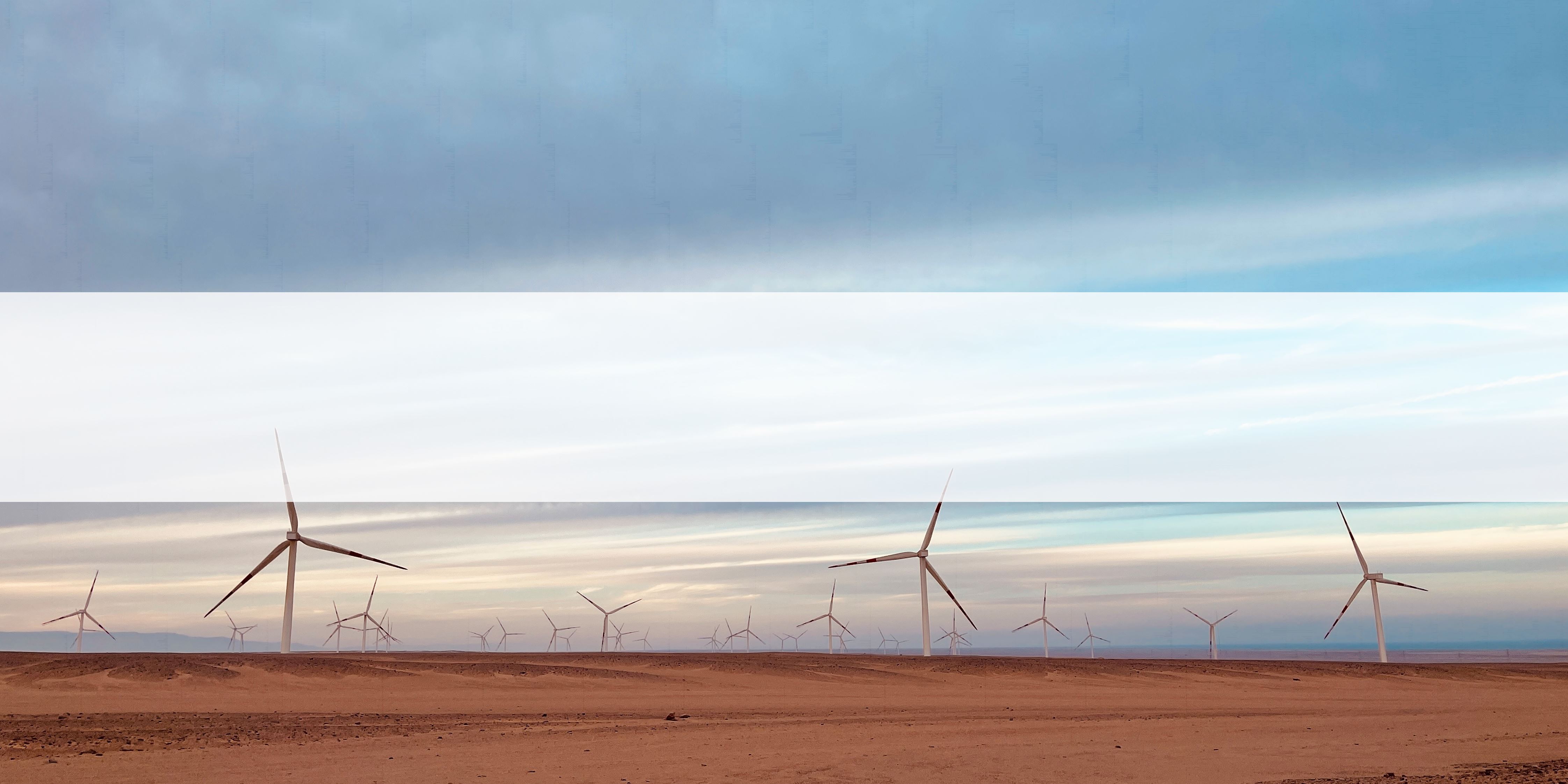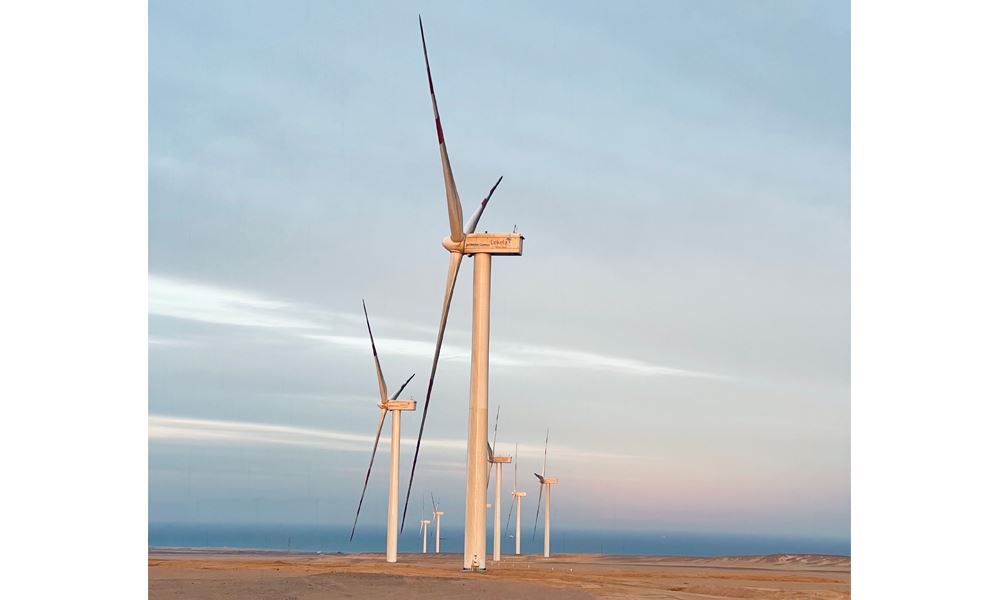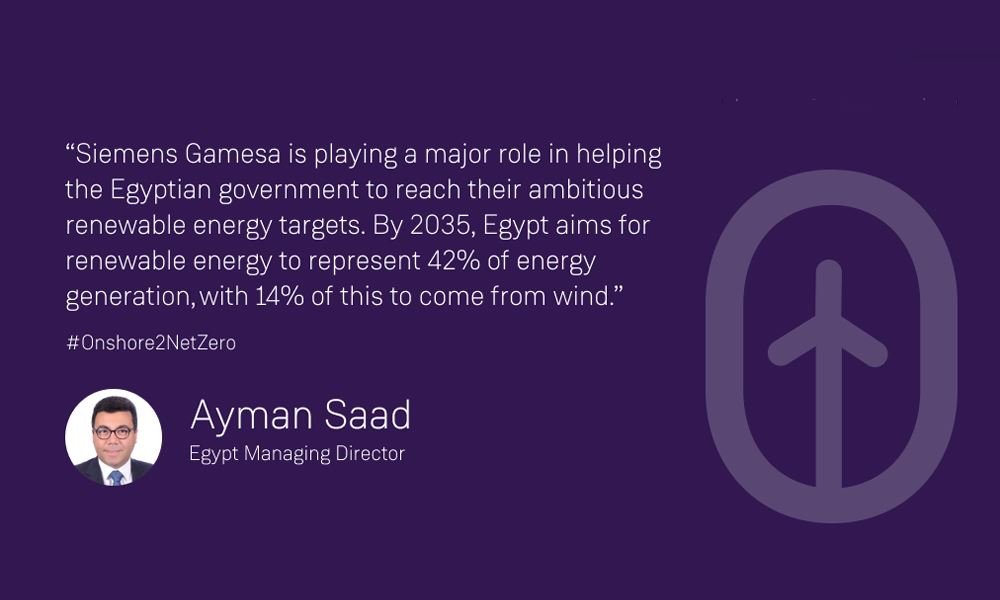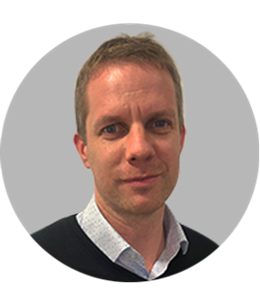
Egypt seeks to become Africa renewable hub
Onshore 100GW
Madrid / 12 May 2022
As Siemens Gamesa’s Onshore business surpassed the 100GW milestone earlier this year we are taking a look at three key projects in this short #onshore2netzero campaign that in recent times have helped the company reach this important marker. The campaign aims to acknowledge this important marker while acknowledging that much more capacity will be required globally in the years ahead for the world to meet its net zero targets. The projects we will look at aim to show some of the people, technology and innovation that have helped drive wind energy in different communities across the world.
The first project we are looking at it is in Egypt. Ayman Saad, Managing Director for Egypt, gave us his thoughts on Siemens Gamesa’s development in the country and the ambitions for the country as it races to meet its renewable objectives. He also took a look ahead as the country is set to host the next climate talks at the United Nation’s COP27 in Cairo later this year.

What does Siemens Gamesa’s presence look like today in Egypt?
We delivered the first wind farms in Egypt in 2005 and are currently looking to expanding our leadership in the country. And now the country represents the largest and most rapidly evolving market for us today in terms of opportunities in Africa. At present we have 1.5 GW of installed wind capacity and a 90% market share. And our real aim is to develop a local network of suppliers and subcontractors while encouraging positive social and environment impact in Egypt for Egypt.
How do you see government’s progress in the implementation of Egypt’s sustainable energy strategy and what is the role that Siemens Gamesa plays in the execution and the achievement of this strategy?
The Egyptian government has mapped out an ambitious plan for the country's energy future to meet the rapidly increasing energy demand and the requirement of climate change challenges.
The Integrated Sustainable Energy Strategy aim to ensure the stability of the country's energy supply targeting 20% of electricity generation from renewables by 2022 and 42% by 2035. Siemens Gamesa has actively contributed from the early stages in the implementation of Egypt's strategy by providing the right onshore technology and resources required in the development of the country's wind power plan. Concretely we have helped to increase wind power generation capacity to 18% by the end of 2021 with the achievement of the 250 MW West Bakr wind farm.
How is Siemens Gamesa shaping its local impact in Egypt towards communities?
Siemens Gamesa aims to bring positive change in Egypt with a long-term social commitment strategy. Our local initiatives are mainly focused on reducing poverty by looking for local investment opportunities to give a better life to our communities and to enhance their living conditions. We are also supporting national education with several programs. We contributed to improving the infrastructure of an elementary school in Ras Ghareb where we operate, aiming to upgrade the quality education of many children.
Today, renewable energy is already providing millions of people in Africa access to electricity for the first time. However, across the continent, only 40% of the population has access to electricity. The challenge remains that Africa needs a more stable evolution and growth in the sector to optimize the investment framework. This implies that better terms and infrastructure, such as access to electricity networks, a sizeable pipeline of bankable projects and clear procurement processes, are needed.

Therefore, at Siemens Gamesa, we are actively calling for more concerted efforts between public and private sector actors to attract private investments and technological transfer on an unprecedented scale.
Can Egypt become a hub for renewable energy in Africa in the run-up to the COP27 climate talks in November?
There can be no doubt that Egypt is today a role model in the MENA region! The country has set ambitious goals to create a more efficient, sustainable energy portfolio. By 2035, Egypt aims to source 42% of its electricity from renewables out of which 14% from wind energy. Going into the COP 27, Egypt aims for the global community to move from the stage of pledges to the stage of actual implementation on initiatives to combat climate change. We believe that this is the ultimate opportunity to focus on the African continent, so that African states present their requests to keep pace with changes at the local level.
Onshore 100 GW
#onshore2netzero
